Somerset BKA Lecture Day 2025
Schedule
Sat Feb 08 2025 at 09:00 am to 05:30 pm
UTC+00:00Location
The Canalside Conference Centre | Bridgwater, EN

About this Event
Somerset's annual Lecture Day offers a packed programme of talks, workshops and a trade hall in a spacious conference centre with ample parking and refreshments. The day is aimed at beekeepers at all levels.
Lectures:
- The truth about honey? Lynne Ingram MB, NDB
- VespAI: Applying deep learning to the detection of invasive hornets: Dr Thomas O'Shea-Wheller
- Bees and trees – An ancient partnership: Richard Rickitt
Choose one workshop/seminar in the morning and one in the afternoon.
Seminars:
- 1c AM only - seminar - How do I know what that is? Megan Seymour, SW Bee Inspector
- 1d AM only - seminar - The effect of weather patterns on bee behavior and management: Geoff Blay MB
- 2c PM only - seminar - Taking bees to the heather: Alan Nelson MB (may be changed at short notice to seminar Managing aggressive colonies - seminar: Tricia Nelson MB)
- 2d PM only - seminar - Sweetness and Light - the Story of Bees and Man: how bees help us to understand the changing ecology around us: Eleanor Burgess
Workshops:
- 1a & 2a AM or PM - workshop - Microscopy pollen identification: Bridget Knutson MB
- 1b & 2b AM or PM - workshop - Making dipped candles (cost £10 to cover materials): Maggie North
Choose one workshop/seminar in the morning and one in the afternoon. Note: Workshops have limited numbers - buy now to avoid disappointment! IMPORTANT! A Lecture Day ticket is required to attend any of the workshops/seminars.
Or enjoy free-time to catch up with friends or visit the trade hall. Also, a great raffle! The programme is subject to change.
Trade hall open from 8.30am until 3.30pm.
Tickets cost: £15.00 which includes two cups of tea/coffee during the day & booking fees.
Programme*
9.00am Registration and chance to browse the trade hall and catch up with friends
9.30am Welcome
9.40am The truth about honey? Lynne Ingram MB, NDB
10.40am VespAI: Applying deep learning to the detection of invasive hornets: Dr Thomas O'Shea-Wheller
11.40am Tea/coffee break and chance to browse the trade hall
11.55am Workshop/seminar session AM – a Lecture Day ticket is required to attend any of the workshops/seminars. Select from one of the following:
- 1a Microscopy pollen identification - workshop: Bridget Knutson MB
- 1b Making dipped candles - workshop(cost £10 to cover materials): Maggie North
- 1c seminar - How do I know what that is? Megan Seymour, SW Bee Inspector
- 1d seminar - The effect of weather patterns on bee behavior and management: Geoff Blay MB
1pm Lunch – either pre-order sandwiches, purchase soup and snacks at the venue or bring a packed lunch
2pm Workshop Session PM – a Lecture Day ticket is required to attend any of the workshops/seminars. Select from one of the following:
- 2a workshop - Microscopy: Bridget Knutson MB
- 2b workshop - Making dipped candles: Maggie North
- 2c seminar - Taking bees to the heather: Alan Nelson MB (may be changed at short notice to Managing aggressive colonies: Tricia Nelson MB)
- 2d seminar - Sweetness and Light - the Story of Bees and Man: how bees help us to understand the changing ecology around us: Eleanor Burgess
3.15pm Tea/coffee break and chance to browse the trade hall plus
3.30pm Bees and trees – An ancient partnership: Richard Rickitt
4.30pm Farewell and raffle draw
* The programme is subject to change.
Lecture
The truth about honey? Lynne Ingram MB, NDB , Chair of the Honey Authenticity Network, & BBKA honey ambassador (pictured below)
Lynne has kept bees for over 30 years and runs 15-20 colonies in Somerset. In recent years she has become an expert in the second most adulterated food in the world - honey. ln this talk she lifts the lid on the how, why and wherefore of honey fraud and adulteration, and the shocking impact it is having on the livelihoods of beekeepers around the world. She looks at why this fraud continues and what can be done about it. She also takes a deep dive into what is happening in the UK.
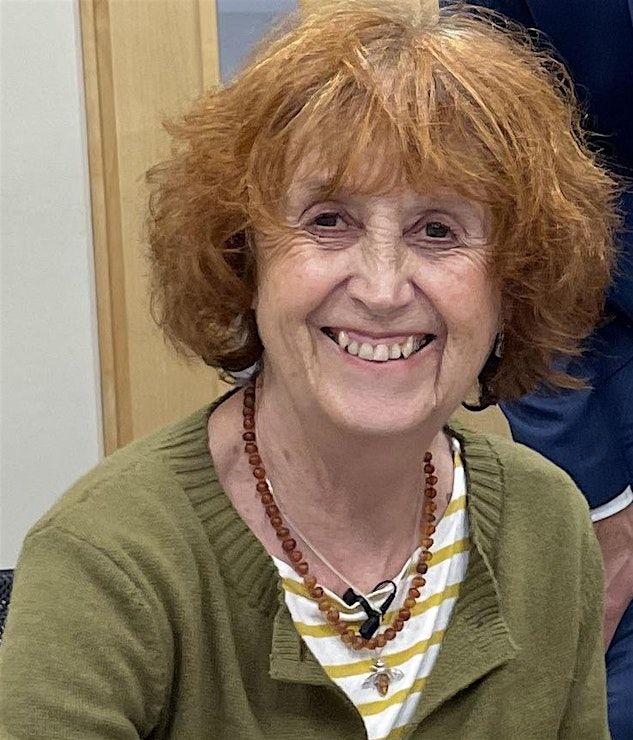
Lecture
VespAI: Applying deep learning to the detection of invasive hornets: Dr Thomas O'Shea-Wheller, Research Fellow at Environment and Sustainability Institute, University of Exeter (pictured below)
The invasive, yellow-legged Asian hornet (Vespa velutina nigrithorax) has spred rapidly across large areas of Europe and East Asia, raising concern due to its impact on beekeeping, agriculture, and biodiversity. To date, authorities have struggled to contain the hornets, as colonies must be detected and destroyed early in the invasion curve if establishment is to be prevented. The current UK response relies on visual reports by the public, however approximately 99% of submitted reports are, in fact, misidentified native species. With ongoing annual incursions, there is thus a pressing need to develop improved monitoring technologies within a limited timeframe.
In this talk, Thomas outlines VespaAI, an automated system for the rapid detection of Asian hornets. Vespa AI leverages a hardware-assisted AI approach, combining a standardised monitoring station with deep YOLOv5s architecture, trained on a bespoke end-to-end pipeline. This enables the system to detect hornets in real-time - achiving a precision-recall score of 0.99 - and sends associated image alerts via a compact remote processor.
Thomas discusses the development, performance, and future deployment of the system, and highlights its potential to enhance the surveillance and control of invasive hornets.
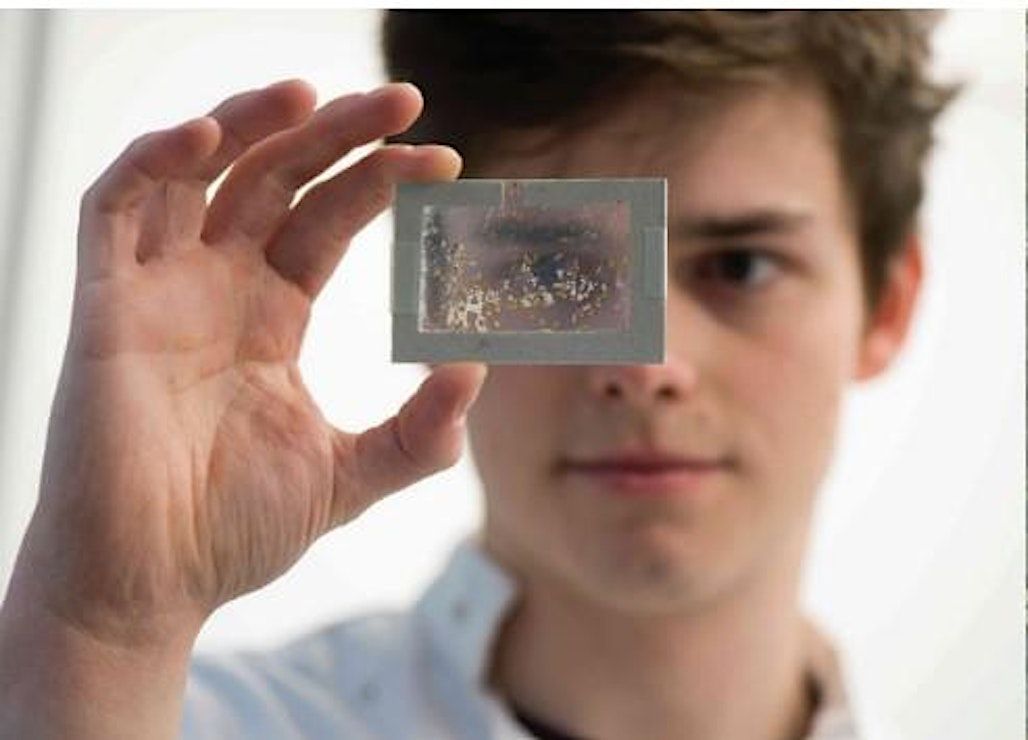
Lecture
Bees and trees – An ancient partnership: Richard Rickitt (pictured below)
Richard is co-editor of BeeCraft magazine. Brought up on a smallholding in Somerset, he learned to keep bees over 40 years ago as a member of the beekeeping club at Huish Episcopi school in Langport. Resuming the hobby after moving from London to Wiltshire in 2006, he now keeps about 20 colonies. As beekeeper at Westonbirt, the National Arboretum, and with apiaries in woodlands that are Sites of Special Scientific Interest (SSSI’s), he is fascinated by how honey bees interact with the landscape, sources of forage and the relationship between bees and trees. He is the author of the recently published book, Beekeeping for Gardeners.
Bees and trees – An ancient partnership
An ancient and close relationship with trees has greatly influenced the evolution and geographic distribution of honey bees. This talk reveals how trees enabled bees to colonise the British Isles and the ways in which people living here perhaps first interacted with and exploited honey bees, eventually becoming beekeepers. The talk looks at what trees provide for bees including cavities in which to nest and various essential resources, and how the relationship can work both ways. It concludes with a look at some of the most useful UK species of trees for honey bees including those worth planting in the garden.
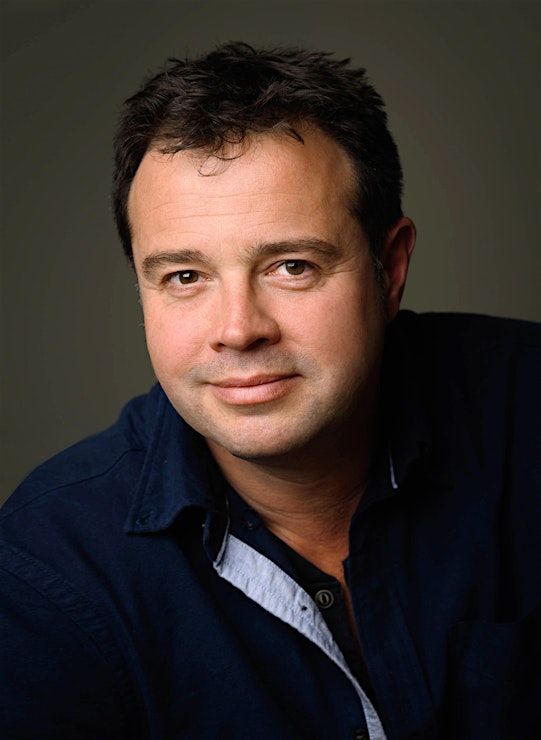
1a & 2a (AM & PM) - Workshop - Microscopy pollen ID in honey with Bridget Knutson, MB
Where did your honey come from? We will be looking at finding out what flowers your bees visited and learning to identify pollen from a honey sample.
Bring a small sample of your honey to test, and a compound microscope if you have one.
NOTE: A LECTURE DAY TICKET IS REQUIRED TO ATTEND ANY WORKSHOP/SEMINAR!
1b & 2b (AM & PM)- Workshop - Making dipped candles with Maggie North
There is an additional charge of £10 to cover the cost of materials - take away your own dipped candle!
Please note: this workshop will be held in an upstairs room and there is no lift.
More information to come.
NOTE: A LECTURE DAY TICKET IS REQUIRED TO ATTEND ANY WORKSHOP/SEMINAR!
1c - Seminar (AM only) - How do I know what that is? with Megan Seymour, Joint Regional Bee Inspector for Somerset, Devon, Cornwall and the Isles of Scilly
(pictured below)
When I was growing up my father kept three WBC hives with colonies at the end of the garden. I was always interested and particularly loved the honey, but the closest I got was accidentally kicking the hives when playing chase or chopping the set honey out of a bulk tin for Sunday tea.
I finally started keeping my own hives about 25 years ago with twohives on an allotment, but rapidly moved up to five colonies and had a lovely site in an old walled garden for several years. I was encouraged to take the basic exam and worked my way through the BBKA module system. Although I found some parts incredibly boring, I have found the basic fundamental theory of keeping bees to be a great help as I have progressed with my own beekeeping. I currently have about 25 hives on several different sites and concentrate on keeping them all alive and healthy! Good queens (from my own queen rearing) and a decent honey crop are a bonus.
I became a Seasonal Bee Inspector in 2008, first with the Central Science Laboratories (CSL), then the Food and Environment Research Agency (FERA) and now the Animal and Plant Health Agency (APHA). Until October 2014 this was combined with working for a consultant engineering company analysing and patterning fabric roof structures such as Wimbledon centre court roof and various football stadia and entrance canopies around the world. I then worked mostly for the Plant Health and Seeds Inspectorate (PHSI) in the winter months until February 2022 when I took up my current role as Regional Bee Inspector for the South-West.
Bee Inspecting has given me a huge amount of experience of beekeepers and the chance to see a great variety of hive types and ways of keeping bees. In my old inspection area, I used to cover Maisemore apiaries near Gloucester and go up to Moreton in the Marsh in NE Gloucestershire so a fair bit of travel! I feel very privileged to be able to help beekeepers in the Southwest although at times also very frustrated by them too! (Going on a beginner’s course is just that – a beginning.)
I am a very practical beekeeper and appreciate the shortcuts that beekeepers like to make to keep within their budgets. However, in my world the welfare of the bees comes first and if I have provided a home for them then I believe it is up to me to keep them healthy and in that home.
We now have more than twice as many beekeepers registered as were when I started. However, there are many more unregistered so please encourage anyone one you know to do so. It is free!
“How do I know what that is?” - topics covered include:
• What is keeping bees?
• Honey bee lifecycle
• Looking through a hive
• Inspection process
• General problems
• Notifiable diseases (and pests)
• What kills most bees?
• Varroa impact
• The consequences of doing nothing
NOTE: A LECTURE DAY TICKET IS REQUIRED TO ATTEND ANY WORKSHOP/SEMINAR!
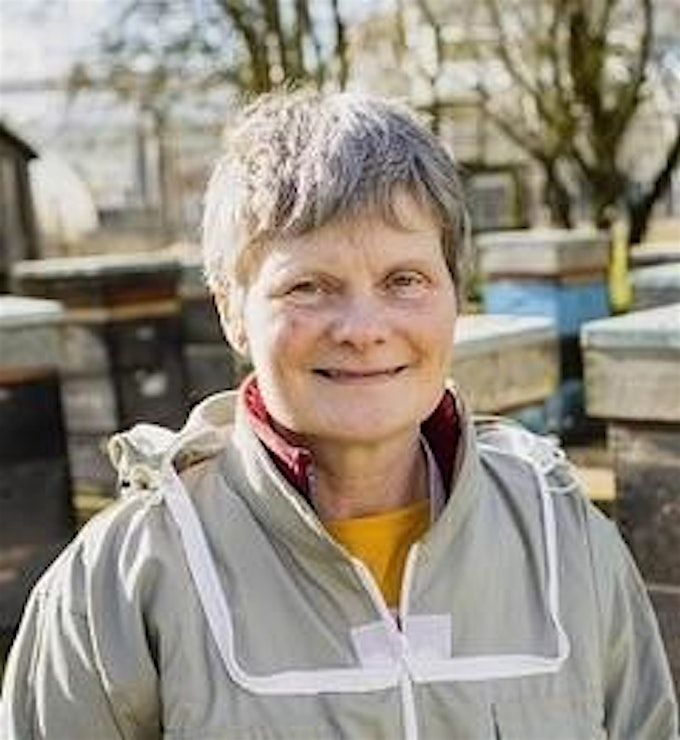
1d - Seminar (AM only) - The effect of weather patterns on bee behavior and management: Geoff Blay MB
(pictured below)
This presentation explores the relationship between weather patterns and bee behaviour and suggests strategies to pre-empt many of the management problems that may arise including surviving the winter, starvation, swarm pressures and unreliable queen mating.
NOTE: A LECTURE DAY TICKET IS REQUIRED TO ATTEND ANY WORKSHOP/SEMINAR!
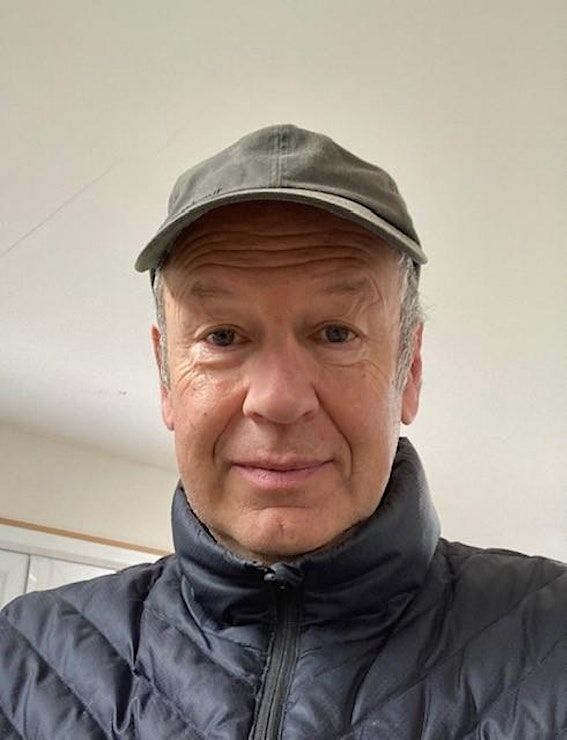
2d - Seminar (PM only) - Sweetness and Light - the Story of Bees and Man: how bees help us to understand the changing ecology around us with Eleanor Burgess
NOTE: A LECTURE DAY TICKET IS REQUIRED TO ATTEND ANY WORKSHOP/SEMINAR!
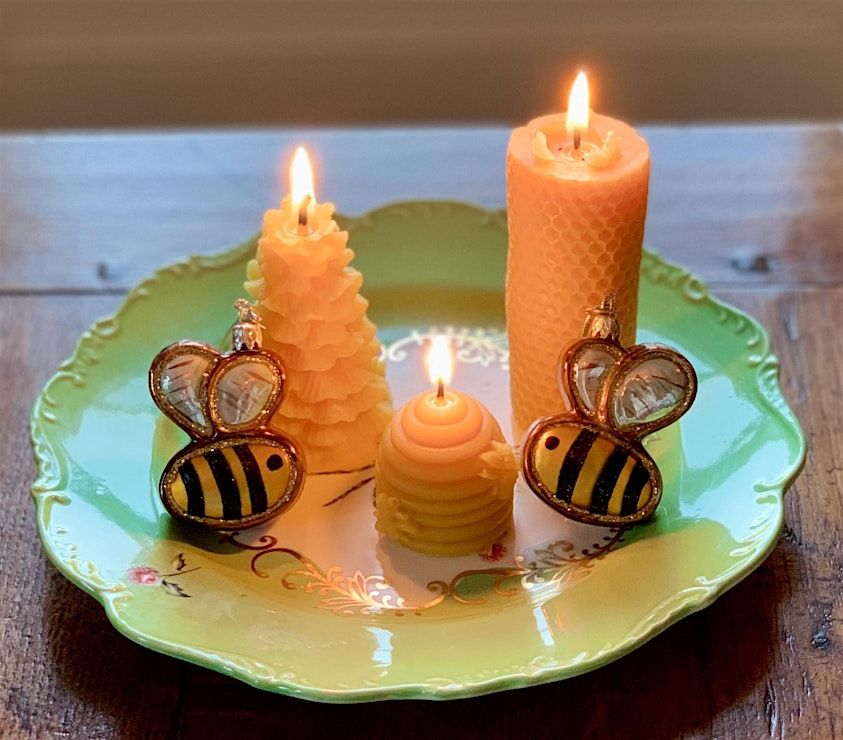
2c - Seminar (PM only) - Taking bees to the heather with Alan Nelson MB (seminar may be changed at short notice to Managing aggressive colonies: Tricia Nelson MB)
More information to come.
NOTE: A LECTURE DAY TICKET IS REQUIRED TO ATTEND ANY WORKSHOP/SEMINAR!
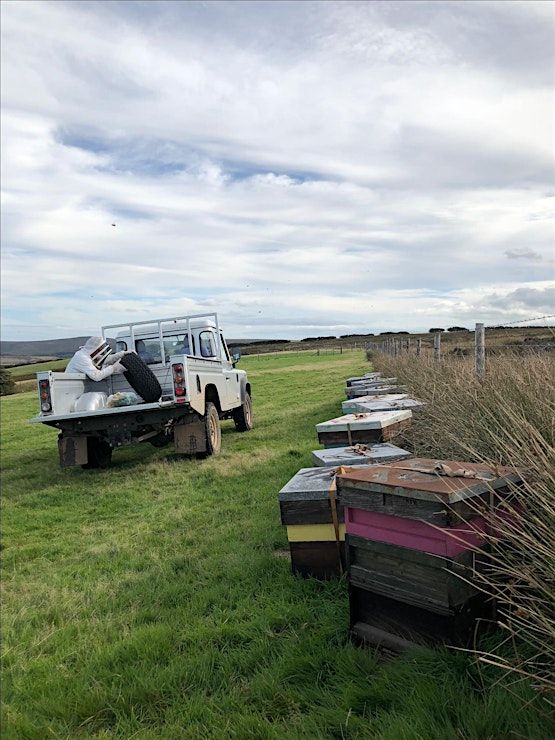
Refreshments:
*Lunches available to pre-order; collect and pay on arrival at the venue:
Sandwich options with crisps, cake & fruit:
Ham & salad; or egg & chive; or cheese & pickle; or tuna & sweetcorn - £8.40
Vegan options with flapjack and crisps:
Sweet chilli falafel wrap or Mediterranean salad - £10.80
Drinks, paninis and a selection of home-made cakes will be available to purchase during lunch and break-times.
*All options can be made to accommodate individual dietary requirements; please advise when ordering:
Alternatively, bring your own pack lunch!
Where is it happening?
The Canalside Conference Centre, Marsh Lane, Bridgwater, United KingdomEvent Location & Nearby Stays:
GBP 0.00 to GBP 15.00















